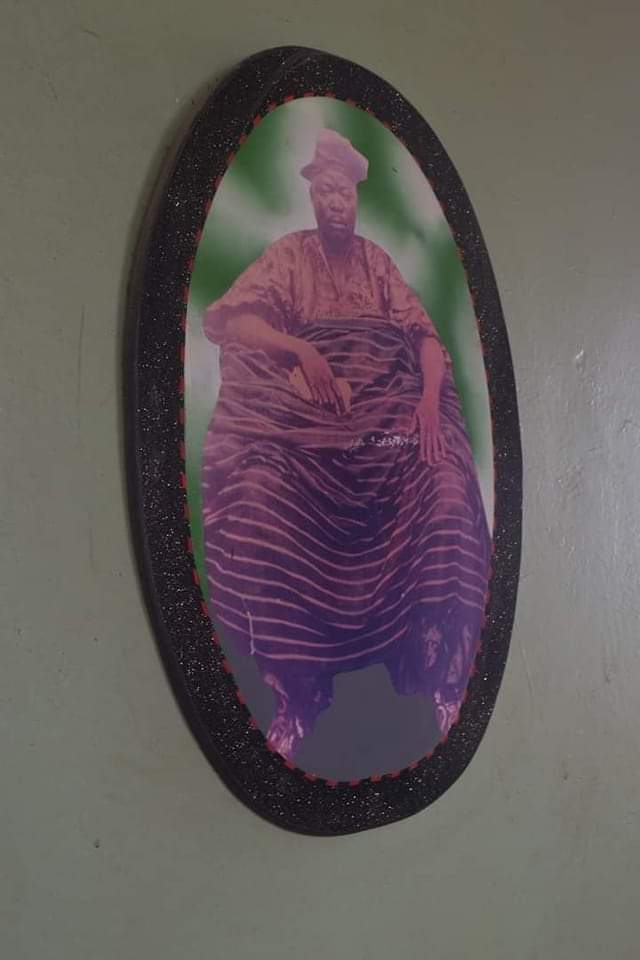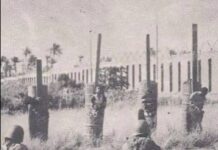Sanusi Adebisi Idikan, the entrepreneur who paid tax for the whole of Ibadan
In a world of big names and propaganda, true heroes are often unsung. Our ICON for the week is Ibadan’s 19th-20th Century definition of humanity and success, Sanusi Adebisi Idikan.
If ever there was a man who left indelible marks on Ibadan’s landscape in commerce, engaged in philanthropy and humaneness in the late 19th and 20th centuries, that man was Sanusi Adebisi Idikan
Born in 1882, in Ibadan during the reign of Aare̩ Latoosa, the Baale̩ of Ibadan to Ades̩ina, an Ofi cloth weaver- a traditional Yoruba cloth maker- who had migrated from Efo̩n Alaaye (Ekiti Stock) in present-day Ekiti State.
Adeshina had moved to Ibadan with his paternal half-brother- Alabi and settled in Aremo̩, in the household of Lanase̩.
Adesina whilst plying his trade of Ofi weaving, was also a spiritual consultant to Alaafin Atiba, who had betrothed his most precious daughter- Princess Ogboja to him, in recognition of Adeshina’s great spiritual impact in his life.
Adesina got married to Ogboja and begot three children- Adetinrin, Adeoti, and Adebisi.
Although Sanusi Adebisi was the last child and started out hawking Ofi clothes with his siblings in Ibadan, he expanded to surrounding towns before the age of 18, became an instant success, and even retired his siblings from the business.
He thereafter ventured into large-scale farming, with a cocoa plantation in Ashipa village, Mamu, and soon acquired about 200 Acres of land in Apata Ibadan, where he developed another cocoa plantation. , In no time, he was made the Giwa Egbe (head of the society) by his other successful merchants, like Otiti, Ekolo, Afunle̩yin, Ladimeji from Isale Ije̩bu and Adeyemo̩ Owonbuwo from Oopo-Yeo̩sa.
At a point in time, tax payment became such an issue that a Balogun of Ibadan- Balogun Ola, son of Baale̩ Orowusi, would rather commit suicide than see Ibadan Young men in perpetual tax agony and detention.
Payment of tax became a social symbol and tax defaulters was usually mocked and despised by the popular song-” Owo ori ti d’ ode o, o o’ode o baba wa loko̩ san” –” payment of taxation has come, our fathers were the first to pay, the idiots and lazy ones who have not paid are in detention in Mapo”- “Awo̩n o̩de̩ ti o le san o, wo̩n nbe̩ lati mo̩le ni Mapo.”
Sanusi Adebisi was at this one of the first set of Ibadan elites, perhaps if not the first person, to ride a car, apart from his hordes of horses. Uncomfortable with the situation, he drove to Chief Tax Officer for the Ibadan Colonial Office, Mapo. In his meeting with the officer in the colonial office, he brokered an understanding- “I want to be paying tax on behalf of every taxable adult in Ibadan”. The officer was shocked, nonplussed, and asked him if he knew the financial implication of his gesture. But he still insisted on paying. Henceforth, the colonial officer would calculate the amount of tax expected from all Ibadan-taxable adults and would go to Adebisi Idikan’s residence to collect the money.
On the 26th of November, 1926, Adebisi was installed, the Ashaju Baale̩ of Ibadan, jumping about 10 lines on the rung of the ladder- O̩tun Olubadan (civil) line. Money “is the god of the world” rhapsodized Akinpe̩lu Obise̩san.
Sanusi Adebisi was a man of excessive generosity, whose milk of human kindness was ceaseless. Coming from a visit from E̩de̩, where he had gone to see the reigning Monarch- the Timi of E̩de̩, he saw a handcuffed man, being taken to the Agodi prison yard in Ibadan, by some prison warders. He stopped to ask about the man’s offense- he was a debtor. Adebisi there and then instructed the warders to follow him to collect the money and release the debtor. Despite Adebisi’s intervention, the freed debtor refused to leave Adebisi’s household and stated that he would rather remain and live with him, as one of his boys and this Adebisi gladly obliged.
READ ALSO: Political history of the Adelekes of Ede in Osun
Adebisi had a legendary style of writing off debts, without being prompted. He would ask his secretary / personal assistant- Adeso̩kan, to read out the names of debtors and how much they owed. He would tear the pages and order a match stick. He would strike the match stick and burn all the papers containing the debtors’ names. He would write off the debts whilst saying- “nobody likes to be a debtor”. He also became the President of the Ibadan Land Court in 1936.
Adebisi in ill health had visited the then-renowned surgeon- Dr. Doherty in Lagos. Advised to stay in Lagos to recuperate, he bought a house at 34, Whitman Street, Ebute Me̩ta in Lagos, to enjoy a well-deserved rest.
In January 1938, in his last few moments, he brought out money to assist insolvent debtors. He brought out the papers containing the debtors’ names, tore and burnt them, without anyone noticing any premonition. After a brief illness of some few hours, he bade Mother Earth goodbye on Friday, June 21, 1938, at the age of 56 Years, and such was the glorious exit of the unparalleled, uncommon benefactor and philanthropist.
Follow the Neptune Prime channel on WhatsApp:
Do you have breaking news, interview request, opinion, suggestion, or want your event covered? Email us at neptuneprime2233@gmail.com





